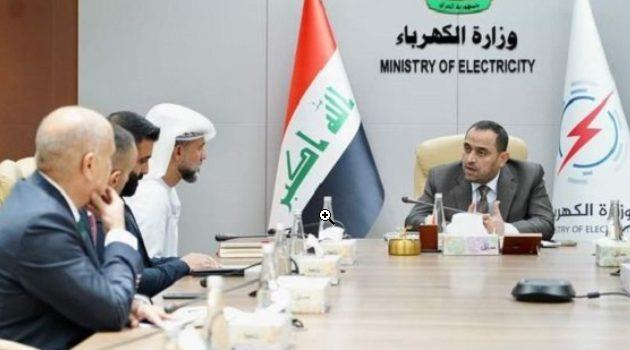Iraq Accelerates Solar Energy Push With Masdar Collaboration

Iraq's Ministry of Electricity is intensifying efforts to bolster its renewable energy capacity, engaging in virtual discussions with officials from the UAE's Masdar to expedite the development of solar power projects totaling 1,000 megawatts across the provinces of Maysan, Dhi Qar, and Anbar. The meeting, led by Electricity Minister Ziyad Ali Fadel, focused on finalising power purchase agreements and addressing implementation challenges, according to a statement from the ministry.
This collaboration is part of Iraq's broader strategy to diversify its energy mix and reduce reliance on fossil fuels. The country aims to generate 20-25% of its electricity from renewable sources by 2030, a significant increase from the current figure, where over 98% of electricity is produced from fossil fuels.
In addition to the Masdar projects, Iraq has embarked on several other renewable energy initiatives. Construction commenced in March 2025 on the Basra Sun project, a 1,000 MW solar power plant developed through a joint venture between France's TotalEnergies and Qatar's QatarEnergy. This plant is expected to supply clean electricity to over 350,000 homes upon completion.
Iraq's renewable energy ambitions are not limited to large-scale projects. The government has announced plans to add 12,000 MW of solar energy to the national grid by 2030. This includes a mix of utility-scale plants and smaller installations, such as rooftop solar systems on government buildings and private residences. The Central Bank of Iraq has allocated $750 million in low-interest loans to support individuals and companies adopting solar power, although uptake has been slow due to various challenges, including limited cooperation from banks.
See also Scientists Launch Independent Climate Assessment After White House Dismisses Federal Report Contributors
The push for renewable energy comes amid chronic electricity shortages in Iraq. The country's power plants currently produce around 27,000 MW, falling short of the estimated 48,000 MW needed to meet national demand. To bridge this gap, Iraq relies heavily on imported gas, particularly from Iran, and flares a significant portion of its own natural gas due to insufficient processing facilities.
Efforts are underway to address these issues. TotalEnergies is also involved in a gas project in southern Iraq, aiming to produce 50 million cubic feet of gas per day within the next year. This initiative is critical for Iraq as it strives to produce its own natural gas for power stations and reduce dependence on costly imports.
Despite the ambitious plans, Iraq faces several obstacles in achieving its renewable energy goals. Challenges include a lack of regulatory frameworks, financial constraints, and infrastructural issues. The International Energy Agency has highlighted that Iraq has one of the highest electricity network losses globally. Reducing these losses by half could significantly improve the efficiency of grid supply, effectively increasing available capacity by one-third.
Finance management tools
The country's electricity sector is heavily subsidised, and the Ministry of Electricity remains the main regulator, infrastructure operator, largest generator, and sole retailer. This bundled approach is costly and unsustainable, making it challenging to attract private investment in the renewable energy sector.
Nevertheless, the government is taking steps to reform the sector. Prime Minister Mohammed Shia al-Sudani has announced a national plan to tackle climate change, which includes building renewable energy plants, modernising inefficient and outdated irrigation techniques, reducing carbon emissions, combating desertification, and protecting the country's biodiversity. Among the projects is a massive afforestation initiative, where Iraq would plant 5 million trees across the country.
Source: MENAFN
